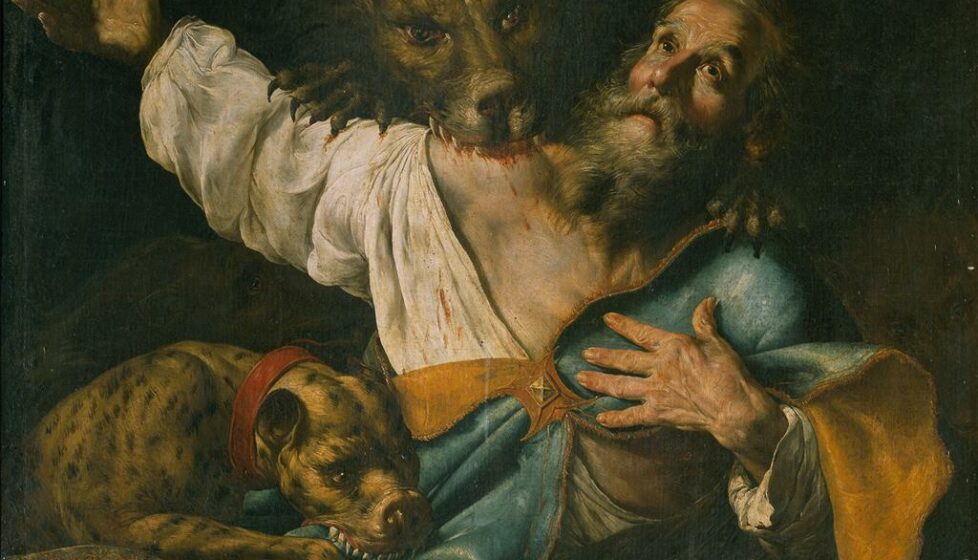Stories of Christian Martyrs: Donald Cargill

Who should govern the church? Bishops appointed by a monarch? Or elders and deacons called by God and endorsed by the church itself? Who is head of the church, Christ or king? This question, along with the role of Scripture and the path of salvation, were critical issues during the Reformation, fought over with argument and sword.
Donald Cargill was a fighting Scotsman, a preacher, and a warrior. Educated at the distinguished universities of Aberdeen and St. Andrews, he was appointed minister to the parish of Barony in Glasgow in 1655. A Covenanter, Cargill was starting his ministry in the calm eye of a hurricane. Ill winds would soon carry him into exile and eventually to his death.
Scottish Covenanters were Presbyterians devoted to church leadership by elders. Thus they were utterly opposed to a church led by bishops, who were titled with a religious mandate but empowered by the English crown. King Charles I of England had sought to impose the Anglican Church in Scotland since 1625. But Charles had met his own doom at the hands of Cromwell’s army in 1649. When Cargill started preaching, England was without a king. Yet the Glorious Revolution was unwinding, and Charles II would ascend the throne in 1660. Cargill thus had five years of peace.

Charles II clearly had territory to recover and an island empire to regain. He had to suppress the Scots, and that meant placing his bishops in charge of the Scottish church. Enough of the independents, the elder ruled churches, and their pastors who, to his thinking, mixed salvation with too clear a hint of political liberation. Charles II declared Covenanters to be traitors, their churches illegal, and the church’s new leader— himself—the sovereign of state and of church.
Cargill responded by “excommunicating” Charles II and his bishops, saying, “The church ought to declare that those who are none of Christ’s are none of hers.” For such carefree boldness, Cargill’s capture now carried a bounty, and the preacher was urged to find refuge in the Scottish lowlands where the king’s agents had fewer allies.
Even during this internal exile, however, Cargill preached and taught, kept moving, and avoided sheriff and hunter. Finally in 1662, Cargill fled to the remote north of England, away from danger.
But could he stay away? He had inspired people with such words as, “If believers loved Christ as He loves them, they would be more in haste to meet Him.” Was that a sermon to preach in exile, fleeing the king’s agents?
Cargill’s conscience said no, and his exile was short. Returning to Scotland again as an outlaw, he resumed his itinerant ministry, careful to keep his whereabouts within the counsel of close friends. Twice he escaped capture; once he suffered wounds during the getaway. Finally in 1679, he joined in a showdown of force at the Battle of Bothwell Bridge where Covenanters were viciously defeated. Cargill again fled, this time to the Netherlands.
Within months he was back, committed to a more open confrontation with the king. Cargill and fellow Covenanter Richard Cameron issued the Sanguhar Declaration, calling for war against Charles II and resistance to his brother, James II, who stood in line of succession.
On July 10, 1681, Cargill preached an inspired sermon in County Lanarkshire in southern Scotland, the site of battles lost against English forces. Before sunrise the next morning, he was seized and taken to Glasgow. He and several other Covenanters received a trial and sentence of death.
When Cargill mounted the scaffold on July 27, he said, “The Lord knows I go up this ladder with less fear and anxiety than I ever entered the pulpit to preach. Farewell all relations and friends in Christ; farewell all earthly enjoyments, wanderings, and sufferings. . .Welcome joy unspeakable and full of glory.” A moment later the executioner’s axe severed his head. Cargill was again absent from his beloved Scotland, this time home with his beloved Savior.
This story is an excerpt from Foxe: Voices of the Martyrs. You can get your own copy free with any donation to The Voice of the Martyrs.

